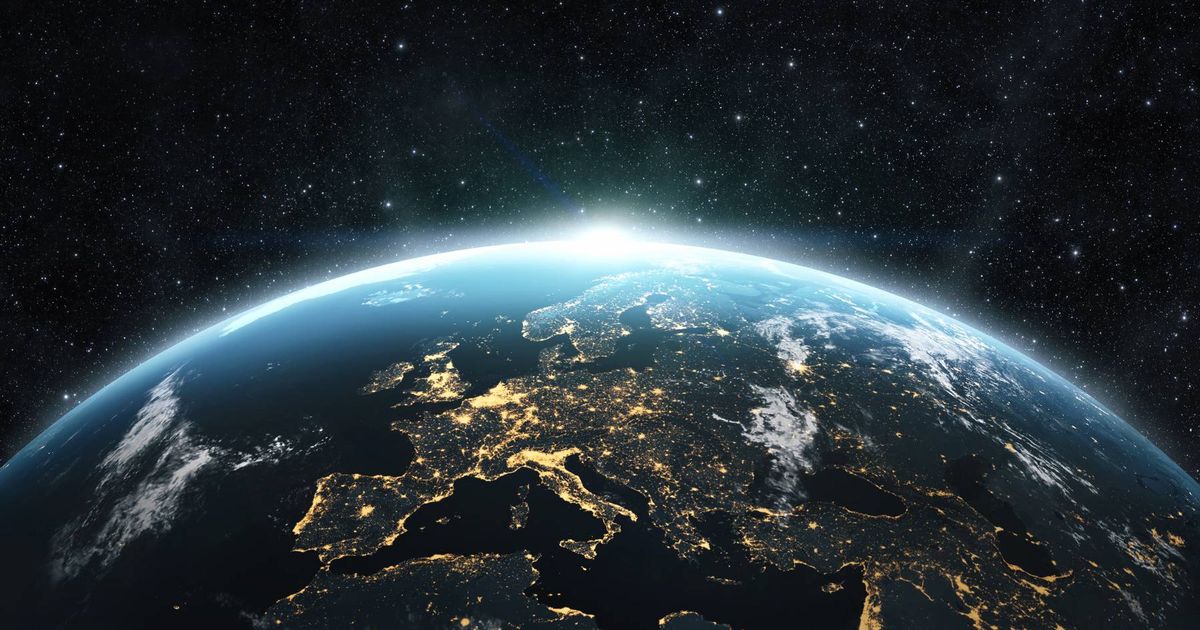Science
Harvard Scientist Claims Breakthrough Math Formula Proves God Exists

A Harvard scientist claims to have demonstrated the existence of a higher power through a complex mathematical formula, igniting significant debate on social media platforms. Dr. Willie Soon, a noted astrobiologist, presented his findings during an appearance on The Tucker Carlson Network, where he discussed the “fine-tuning argument.” This concept highlights the extraordinary precision of the universe’s physical laws, suggesting that such complexity could not be attributed to mere chance.
Dr. Soon’s theory builds on ideas first proposed by the renowned Cambridge physicist Paul Dirac in 1963. Dirac argued that the mathematical elegance of nature’s laws indicates the presence of a superior designer. He stated, “It seems to be one of the fundamental features of nature that fundamental physical laws are described in terms of mathematical theory of great beauty and power,” suggesting that the universe’s intricate structure points to a higher intelligence.
During his interview, Dr. Soon articulated his belief that the universe is filled with “ever-present forces that allow us to illuminate our lives.” He asserted, “God has given us this light, to follow the light and do the best that we can.” This perspective aligns closely with the traditional design argument, which compares the universe to a finely crafted timepiece. Just as the discovery of a complex clock implies the existence of a clockmaker, the intricacies of the universe suggest an intelligent creator.
Despite Dr. Soon’s compelling arguments, not all scientists agree with his conclusions. Critics of the fine-tuning theory often highlight two key counterarguments. First, our understanding of the universe remains limited. While humans are carbon-based life forms, there is the possibility of entirely different physical existences in alternate universes based on different elements.
The second counterargument revolves around the concept of chance. Improbable events occur frequently in nature, and although the odds of the universe’s existence are incredibly low, it nonetheless exists. This perspective suggests that randomness could play a larger role than Dr. Soon acknowledges.
As the discussion surrounding Dr. Soon’s claims continues, it raises broader questions about the intersection of science and spirituality. His assertions may rekindle debates that have persisted for centuries regarding the origins of the universe and the nature of existence. While the scientific community remains divided, Dr. Soon’s work serves as a reminder of the ongoing quest for understanding the cosmos and our place within it.
The implications of these discussions extend beyond academic circles, as they resonate with individuals seeking to reconcile their faith with scientific inquiry. Whether or not Dr. Soon’s formula ultimately convinces skeptics, it undeniably stimulates dialogue on a topic that has captivated humanity for millennia.
-

 Entertainment4 weeks ago
Entertainment4 weeks agoAimee Osbourne Joins Family for Emotional Tribute to Ozzy
-

 Politics4 weeks ago
Politics4 weeks agoDanny Healy-Rae Considers Complaint After Altercation with Garda
-

 Top Stories1 week ago
Top Stories1 week agoIreland Enjoys Summer Heat as Hurricane Erin Approaches Atlantic
-

 World1 month ago
World1 month agoHawaii Commemorates 80 Years Since Hiroshima Bombing with Ceremony
-

 Top Stories1 month ago
Top Stories1 month agoFianna Fáil TDs Urgently Consider Maire Geoghegan-Quinn for Presidency
-

 World1 month ago
World1 month agoGaza Aid Distribution Tragedy: 20 Killed Amid Ongoing Violence
-

 World1 month ago
World1 month agoCouple Convicted of Murdering Two-Year-Old Grandson in Wales
-

 World1 month ago
World1 month agoAristocrat Constance Marten and Partner Convicted of Infant Murder
-

 Top Stories1 month ago
Top Stories1 month agoClashes Erupt Between Far-Right Groups and Migrants in Spain
-

 Top Stories1 month ago
Top Stories1 month agoHistoric Dalkey Pub The Queens Reopens Under New Management
-

 World1 month ago
World1 month agoTrump Defends FBI Deputy Director Amid Epstein Files Controversy
-

 Politics1 month ago
Politics1 month agoTragic Crowd Surge at Gaza Aid Center Claims 20 Lives









